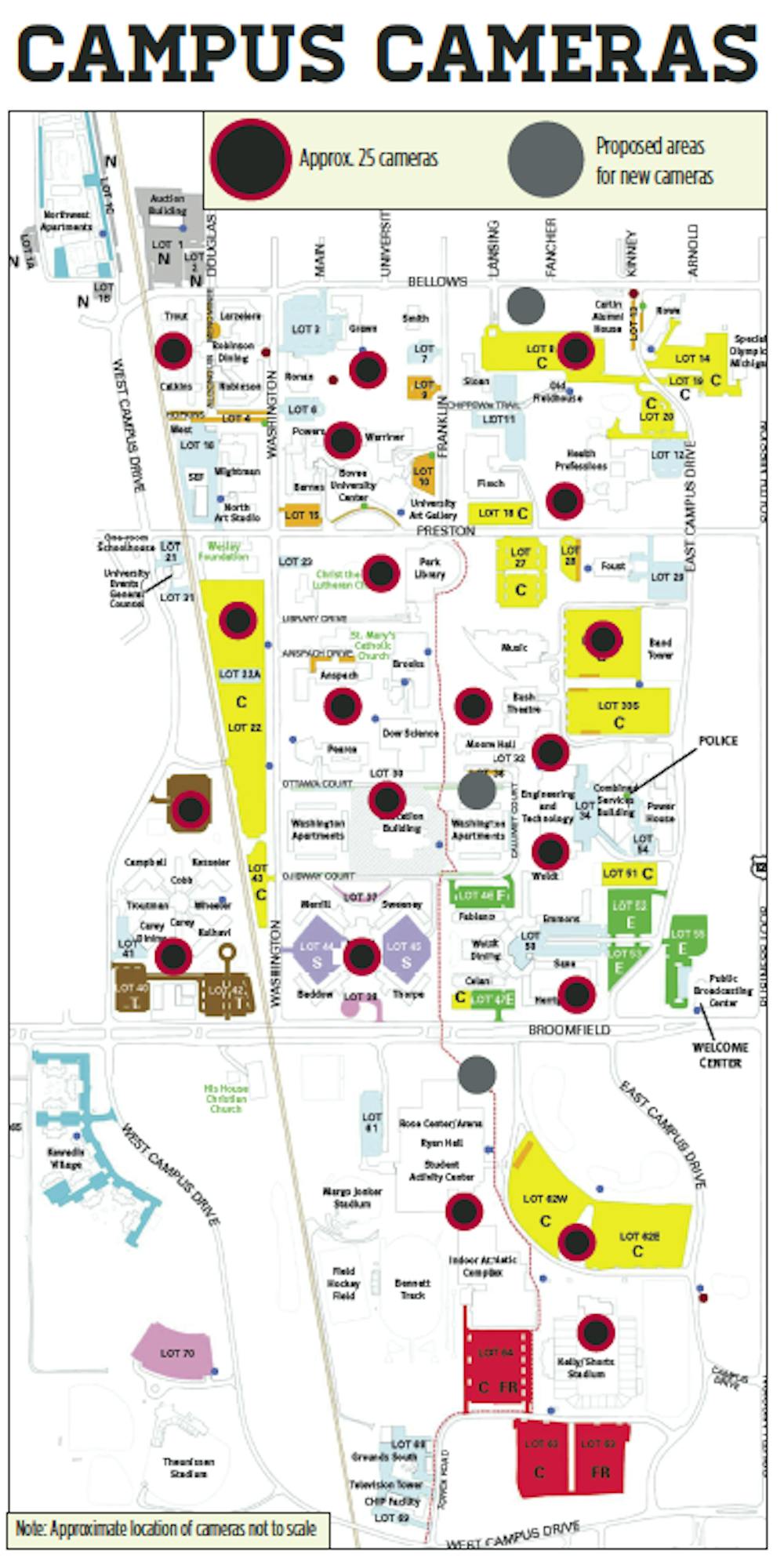With more than 500 surveillance cameras already on campus, more could be on the way
Central Michigan University has 546 cameras installed campus-wide and plans to add more as new buildings open.
"The university has made a commitment to provide basic surveillance capabilities for all future facilities, so there are plans to provide cameras for both CMED and the biosciences (buildings)," Rehm said via email. "(It's) too early for details on these projects, though."
Details about new cameras are in the planning stages, and CMU Police Chief Bill Yeagley said the police department is involved in the planning.
"Every time there is a new building, we get to make recommendations. In the planning stages, before ground is ever broken, we make our recommendations," he said. "Then, like any other building project, the planners have to balance out all the different recommendations that have been made about the building and make it fit their budget."
Though the police department doesn't get to decide exactly where the cameras go and how many there will be, the university follows their suggestions well, according to Yeagley.
"My experiences have been that we will make recommendations, and, on certain occasions, they may cut back or not follow all the recommendations, but they have never ignored them," he said. "The university has been very receptive to fulfilling all of the recommendations we have made, and they have followed all of our recommendations to date."
As an example, Yeagley said if the department recommends 100 cameras, the university will usually fulfill or come close to fulfilling that suggestion.
He admitted more cameras would not totally stop crime on campus, but they would have a part in deterring crime.
"Some people understand there are cameras, so they won't commit crimes in those areas, because they don't want to get caught," he said. "I know from experience the cameras have that impact, and when people know they are on camera, they might not commit a crime."
More cameras might seem like more security, but Yeagley said the cameras are not monitored by somebody every hour of the day.
"I don't want people to think we have all these cameras on campus, and we have someone assigned to watch what's going on every day of the week," he said. "That is simply not the case. I don't want to give people a false sense of security."
Planning for new cameras isn't completely the police department's job; the IT department is also involved with planning where new cameras will go.
"We sit in on the building planing meetings. Typically, what happens for cameras is that we work between the building owner, the person in charge of the building project and the police to figure out what are we doing, where do the cameras go, and how (to) set it up," Rehm said. "That's our role in this entire process."
The university has shown its commitment to security cameras by installing more than 500 cameras in the last eight years. At a price of $500 per camera, the current camera inventory plus support system to date has cost roughly $500,000, as previously reported by Central Michigan Life. Cameras are scattered across campus in locations such as the Bovee University Center, Park Library, parking lots and academic buildings.
Yeagley said the camera system is working well.
"It depends what people believe the camera's jobs are. From my perspective, they are absolutely doing their job," he said. "Their job is two-fold: One is to provide forensic evidence after an event has occurred. The other job they do is make people think twice about committing a crime"




